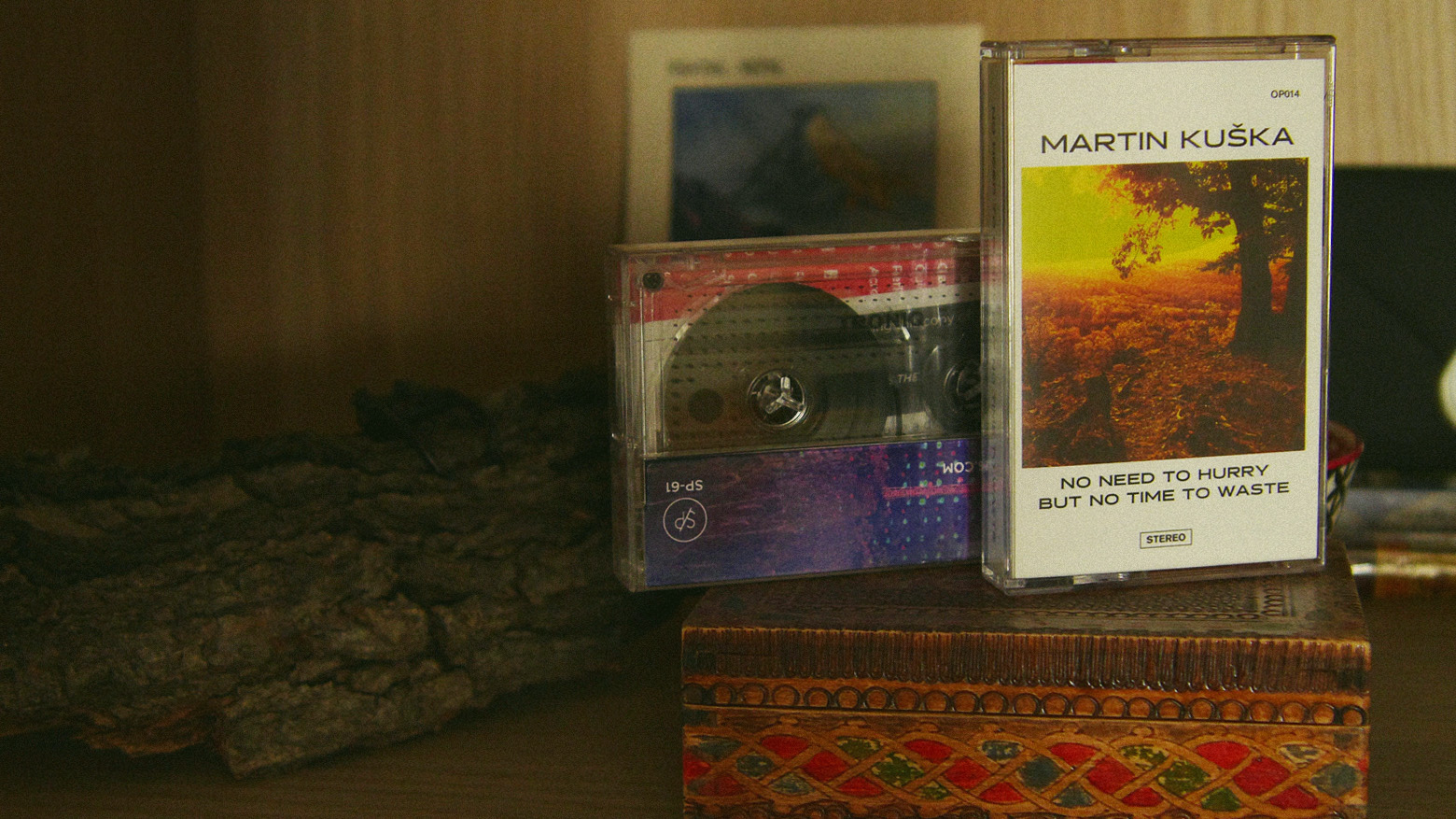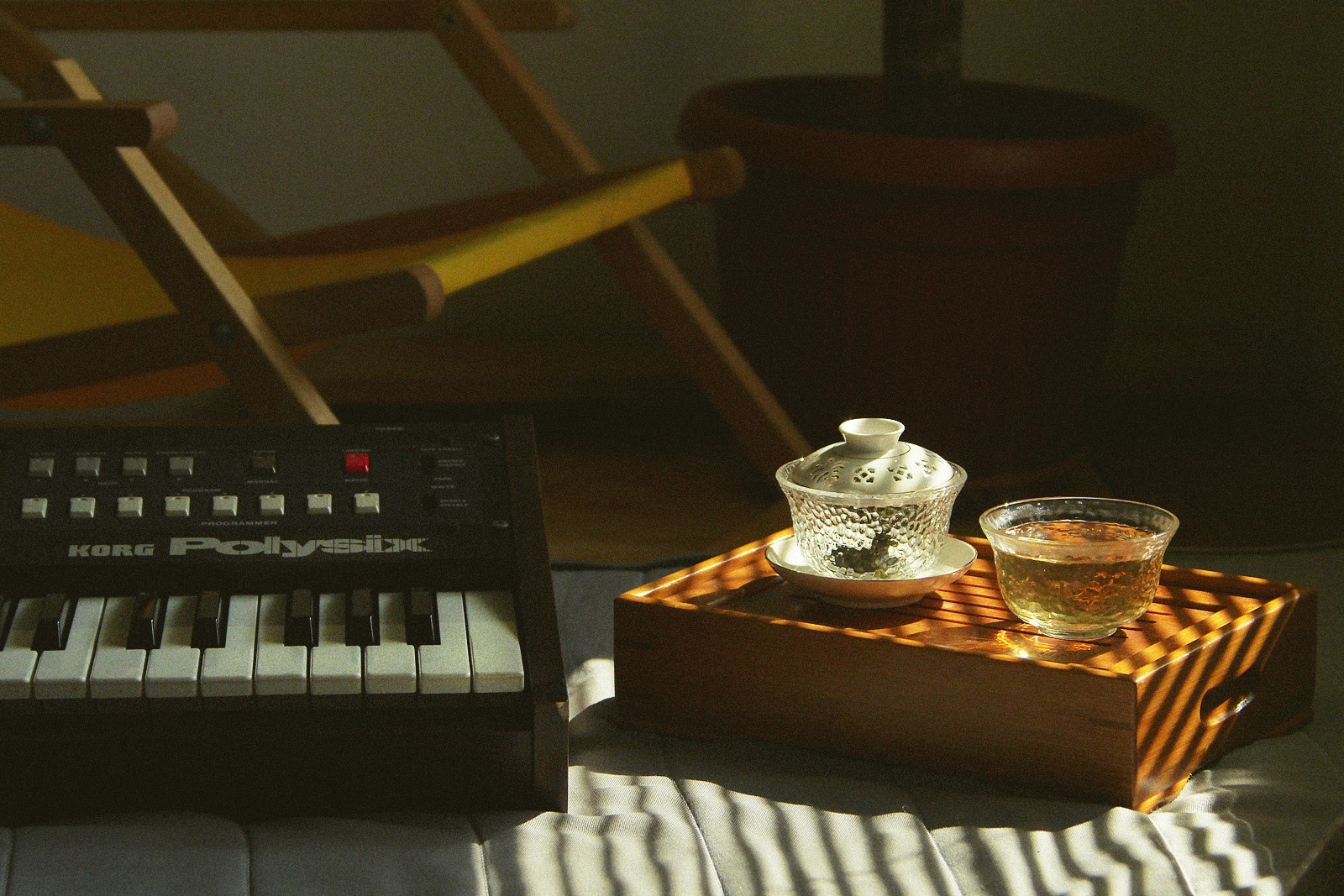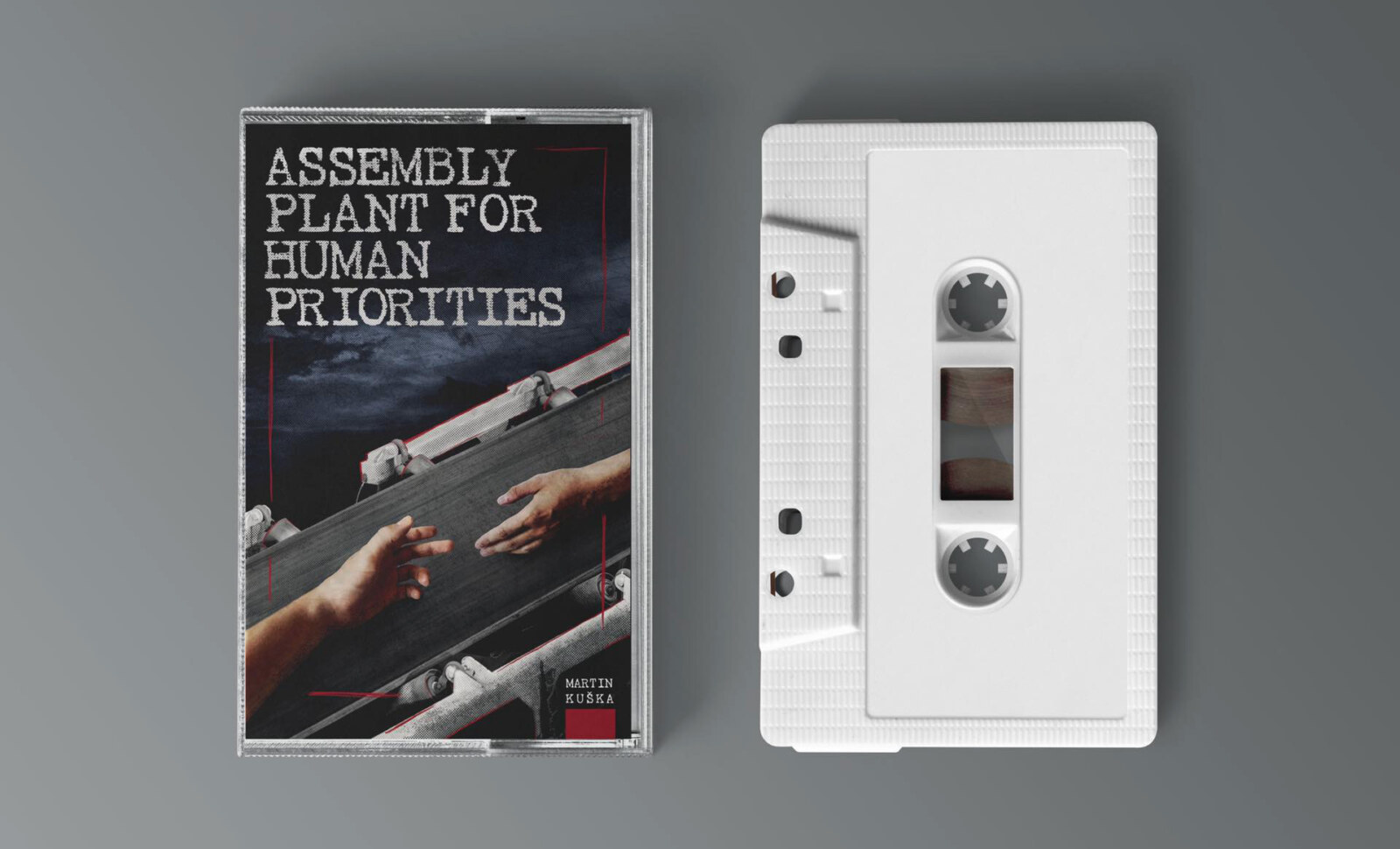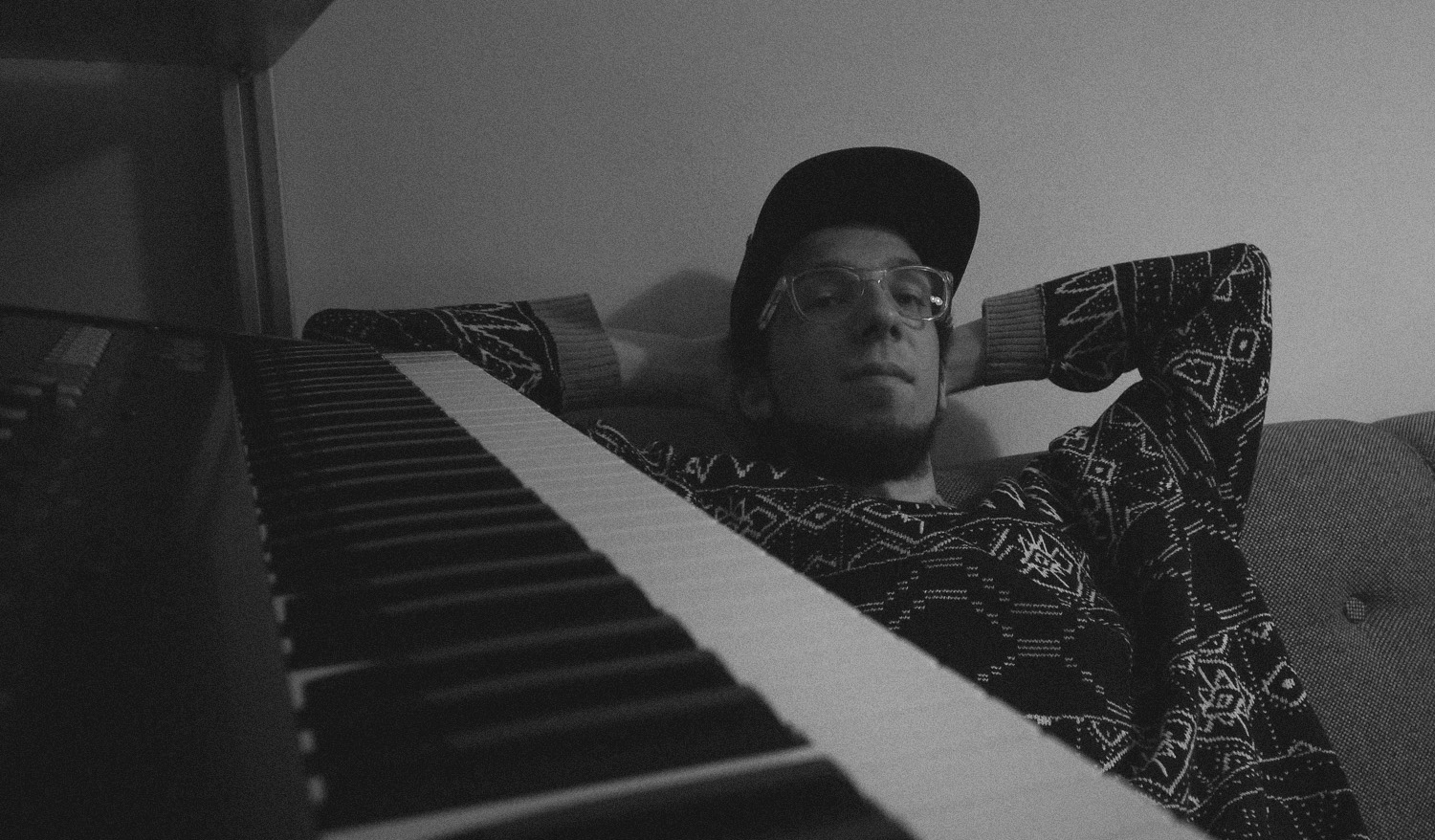Martin Kuška
‘Assembly Plant For Human Priorities’ is an ambient tape made by Martin Kuška from Žebrák, Czech Republic. It’s out on Electric Shapes.
“To enjoy the ordinary everyday things”
Martin Kuška: You know, I think a lot about music in general, looking for associations, stories and personal statements. I don’t really enjoy just jamming without clear goals. That’s how the album ‘Assembly Plant For Human Priorities’ came about. I try to stick to the same concept as my previous LP’s on US Sacred Phrases and Origin Peoples. This means the songs are not tied to each other in any way and you don’t necessarily have to listen to the album from start to finish to make sense. I want each track to stand on its own and hide a full story to think about. The position of electronic music, oscillating from new age to almost psychedelic ambient, allows me to achieve this and imprint the emotions I feel.
You told me you wanted to make the world and society a better place to live and not remember good things when it’s too late.
Yes, this is a big topic for me. You know, sometimes it makes me sad how we as a society are so focused on performance that we often forget to enjoy the ordinary everyday things. It seemed to me that when Covid came along, there was hope all around and a desire to rediscover neglected values. I’ve been through some tough times in my life and since then I have a sort of highly sensitive system for alerting me when I’m doing something that goes against my values. And life feels more fragile to me than before. I don’t want to preach to anyone about how to live, but I’ve met many who found they wanted to live differently, but it was too late…

You also told me that this album was recorded in a camper van.
That’s right! Two years ago, I bought a Subaru Legacy, which I admired as a younger boy. I only have front seats in it and the back part covers mattresses and things for sleeping or camping for several days. I almost always carry a laptop with me for work, because I like the outdoor office. So I thought, why not sometimes bring a sound card and headphones. This is how I did a lot of editing and it brought a completely different atmosphere than being locked in a studio. I have no way to power synths, but it’s great for editing recorded stuff, effects and mixing. It keeps my mind fresh.

What is your set-up like?
I like a modest, functional setup that I can use fully. The most important for me are synthesizers and a practical midi controller with a high quality keyboard. I don’t need much more. At the same time, I most often use the Korg MS2000, Yamaha DX200, which for me is a more easily programmable DX7, and I love the ensemble effect on my 82’s Polysix. I quite like to take these synths to bed or on the carpet, for example, and drink green tea while playing. Of course I also spend a lot of time in DAW. Working purely on HW would probably not seem so effective to me.

The album is released as a tape.
I have a very warm relationship with cassettes. The warm sound and the perfect demonstration of analogue never stop to impress me. And there’s definitely nostalgia, because as a kid I recorded a lot of music on cassettes from foreign stations that satellite on the roof allowed me to listen. So yes, for many reasons, cassette fits this music best for me. For dance electronica I prefer vinyl. I take both formats as an important part of releases because they better build a relationship with the listener. Spotify and similar streaming platforms can never do that.

“I like a certain form of outsidership”
Why do you combine making dance oriented music with a more “ambient” kind of music?
I used to do both as Troniq, but over time, as I watched the evolution of my production, I decided to split the projects so that the listener knew what to expect. ‘Goodbye Mirage’ represents the dance branch and more ambient positions of electronics are being created under my real name. Separating it helped me to specify the sound more, so both projects are almost unaffected. At the same time, however, I must admit that both projects reflect the music that I miss the most at the specific moment. It’s almost the exact opposite of the approach, trying to make something trendy. But that’s how I like it. I like a certain form of outsidership.
When did you start making music, and why?
It was interesting to think about. Time is moving at a frightening pace! I’d divide it into about four years of searching and finding how I’m comfortable to making music and seven years of clearly defined production. I grew up in a really small village almost in the middle of the woods and meadows in the Czech Republic. I realized myself as a child of the forest and street, nobody pushed me into any groups or sports, so naturally I had time to find what I really enjoyed. And I found the desire to express myself through different creative activities. I was drawing a lot, but over time I found that music was the most magical vehicle for this realization. And then a friend moved to our village and he showed me first Sony Acid and various recordings from around the world that his father had brought back when he was traveling as a sound engineer with the theater. And that opened up this imaginary door.
Joeri Bruyninckx
Martin Kuška Facebook / Instagram / Bandcamp / SoundCloud




